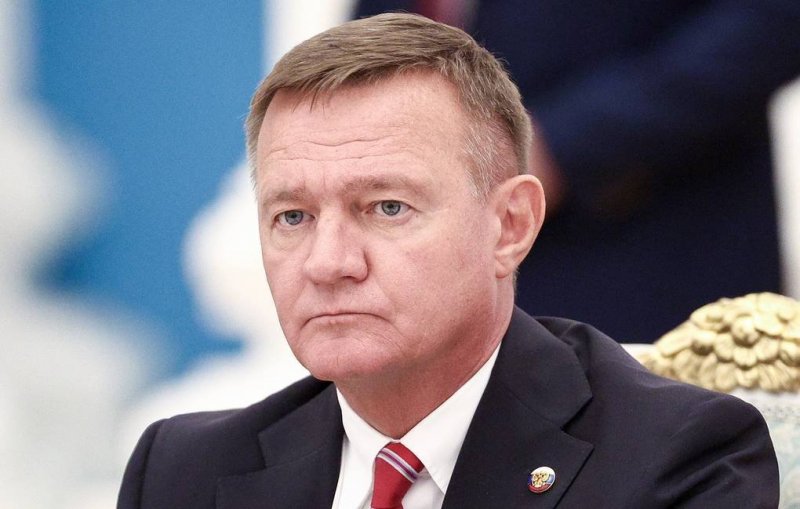
SHOCKWAVES IN KREMLIN: Ex-Transport Minister Roman Starovoit Found Dead Hours After Putin Sack

In a grim turn of events that has sent shockwaves through the Russian political establishment, Roman Starovoit, who was abruptly dismissed as Russia’s Minister of Transport earlier today by President Vladimir Putin, has been found dead from an apparent suicide by gunshot. The stunning development unfolded just hours after news broke of his sudden removal from office, igniting a wave of speculation and concern both within Russia and across international political corridors.
According to a CNN report citing unnamed Russian sources, Starovoit's lifeless body was discovered in his official residence just outside Moscow. Preliminary findings from local law enforcement and emergency responders indicate a single self-inflicted gunshot wound to the head. A pistol was reportedly recovered at the scene, along with what authorities have described as a handwritten note whose contents have yet to be officially released. Russian officials have not ruled out foul play but are treating the case as a suicide for now, pending a comprehensive forensic and psychological evaluation.
The 51-year-old politician, who previously served as the governor of Kursk Oblast before being tapped for the high-profile role of Transport Minister in late 2022, was widely considered a loyalist to Putin’s government. His rise in the Russian political hierarchy was seen by many as meteoric, if not entirely surprising, given his connections within the ruling United Russia party and his reputation for firm leadership. His ouster this morning came without warning or explanation, though Kremlin spokesperson Dmitry Peskov confirmed the dismissal through an official decree signed by the president.
The announcement, which caught even senior bureaucrats off-guard, came during a particularly sensitive period in Russian politics, as the country continues to face mounting economic pressures from international sanctions and logistical constraints amid the ongoing war in Ukraine. Speculation immediately began swirling that Starovoit’s removal was part of a broader purge inside Putin’s inner circle—an effort, some analysts suggest, to root out figures perceived as disloyal or underperforming in critical sectors of national infrastructure.
By early afternoon, before the gravity of his death had been confirmed, various Russian Telegram channels had begun posting cryptic messages alluding to Starovoit’s fragile mental state following his dismissal. One such post claimed that the former minister felt “humiliated” and “blindsided” by the Kremlin’s decision, particularly given his role in overseeing major infrastructure projects tied to Russia’s wartime logistics and his active participation in securing key railway corridors during the recent mobilization efforts. Others close to him reportedly said he had seemed “tense” and “withdrawn” in recent days, though none predicted the tragic end that was to come.
When news of his death broke, it sent immediate tremors throughout Moscow. Journalists, diplomats, and former colleagues began descending on the Ministry of Transport, where a visible police presence had already been established. By early evening, flowers and lit candles appeared at the ministry's front gates—a rare public gesture of mourning in Russia’s heavily controlled political climate. Meanwhile, social media in Russia erupted with hashtags bearing his name, with many users expressing shock and grief, while others questioned the circumstances around both his dismissal and his sudden death.
International reactions have also begun pouring in. The European Union’s foreign policy chief, Josep Borrell, described the development as “deeply troubling,” and called for “full transparency from Russian authorities.” The U.S. State Department issued a brief statement urging a thorough investigation into the matter, stating that “any loss of life in such circumstances demands clear answers.” Human rights organizations, meanwhile, are already calling for international oversight, pointing to a pattern of unexplained deaths and “suicides” among Russian officials and oligarchs over the past two years.
The Kremlin has so far maintained a stoic silence beyond its original confirmation of Starovoit's dismissal. No official condolences have been issued by President Putin, nor has there been any indication that the president intends to publicly address the minister’s death. Analysts believe the Kremlin is carefully calibrating its messaging, likely wary of any admission that might fuel further distrust among Russia’s already-strained administrative elite.
Roman Starovoit’s sudden departure from life marks a grim milestone in a political environment already steeped in suspicion, fear, and secrecy. The former minister, often described by peers as methodical and reserved, leaves behind a wife and two children. His political career, while not without controversy, was largely viewed as competent and focused. His involvement in numerous infrastructure upgrades, including key railway modernization initiatives, made him a central figure in Putin’s wartime logistics strategy.
Yet, the swiftness of his downfall—and the eerie immediacy of his death—has left more questions than answers. Why was he sacked with such urgency? What was the nature of the note found beside his body? And could this be yet another instance in a growing list of high-profile Russian figures who have died under suspicious or mysterious circumstances?
Those questions will likely dominate both Russian and international media over the coming days. For now, the story of Roman Starovoit stands as yet another tragic reminder of the opaque and unforgiving nature of power within the Russian Federation. His death not only casts a shadow over the Kremlin's internal dynamics but also deepens the perception that dissent—or even perceived incompetence—within the highest ranks of Russian governance may come at the ultimate cost.
As investigations proceed, many eyes will remain fixed on Moscow. The world will be watching for signs—however subtle—of what truly led to the fall and death of a man once thought to be a rising star in Vladimir Putin’s increasingly paranoid empire.


